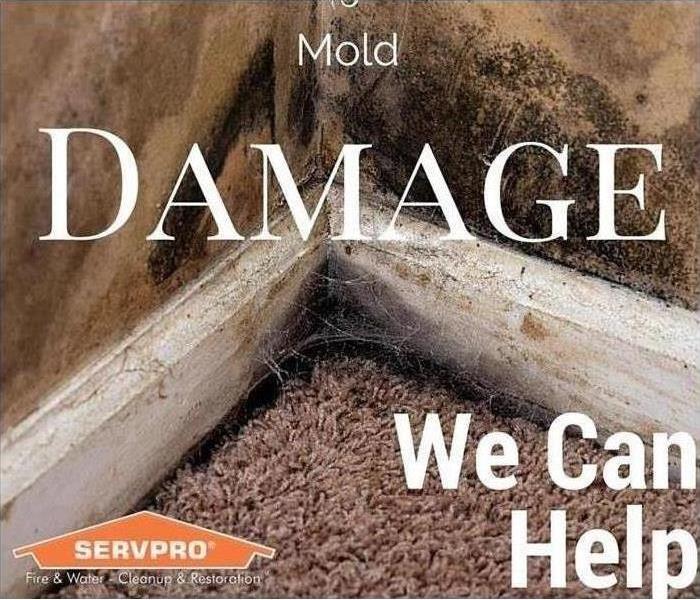How To Tell Mold From Mildew: 3 Key Identifiers
5/21/2018 (Permalink)
Battling mold and mildew in your home can be a year-round housecleaning challenge. From preventing costly mold damage to scrubbing away mildew in the shower, fighting household fungi can take time and a considerable amount of elbow grease. However, trying to clean up mold on your own may cause the further spread of spores and increase the risk of a severe infestation. Knowing how to tell the difference between mold and mildew can help you save time, money and let you know whether you need the services our service for mold remediation
- Texture
Although mold and mildew are both part of the fungi family, they have different textures that are usually visible to the naked eye. Mildew growth is typically thin and slimy, while mold is usually fuzzy or wooly. You can perform a quick test by adding a few drops of bleach to the suspect area, as mildew grows lighter on contact while mold retains its color.
Color
You may be able to tell mold from mildew by the color of the growth. Mildew is usually grey or light yellow as it spreads, while mold growth comes in a variety of colors, from green to white to black. If you suspect what you see is black mold, it is a good idea to avoid touching the area and call in mold damage specialists to treat the problem instead, as this type of fungus can be aggressive and will likely need professional intervention.
Growth Pattern
While both mold and mildew have a few similar qualities, the way each grows and spreads can help you tell them apart. Mildew is a surface fungus that can be wiped away easily, as it develops in flat, thin patches. Mold spores, however, penetrate the surface of any material they attach to and grow into wide patches that can be difficult to remove.
It can be difficult to tell mold from mildew when you encounter either in your home. However, knowing the characteristics of each can help you prevent mold damage and keep your home clean and sanitary.





 24/7 Emergency Service
24/7 Emergency Service
